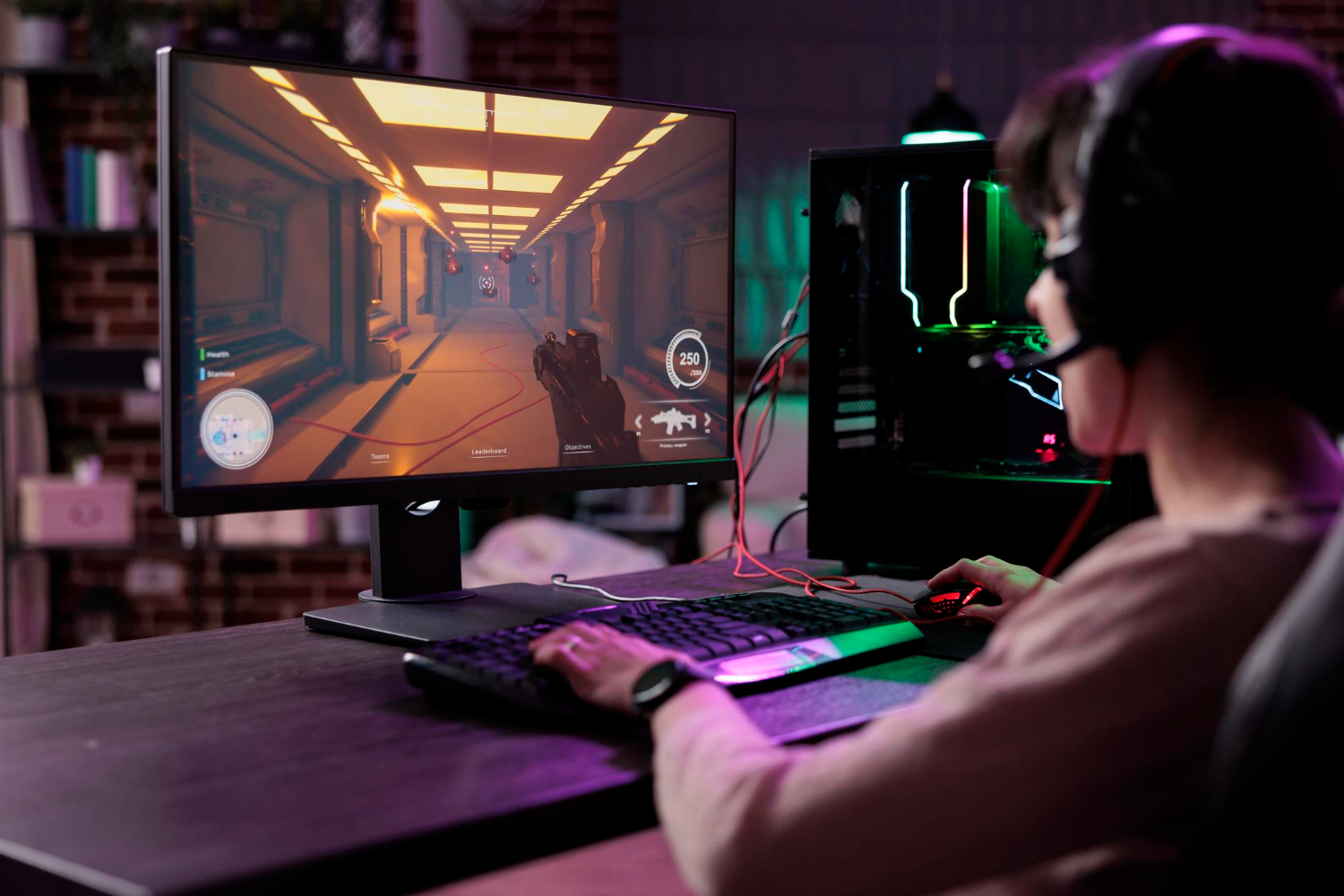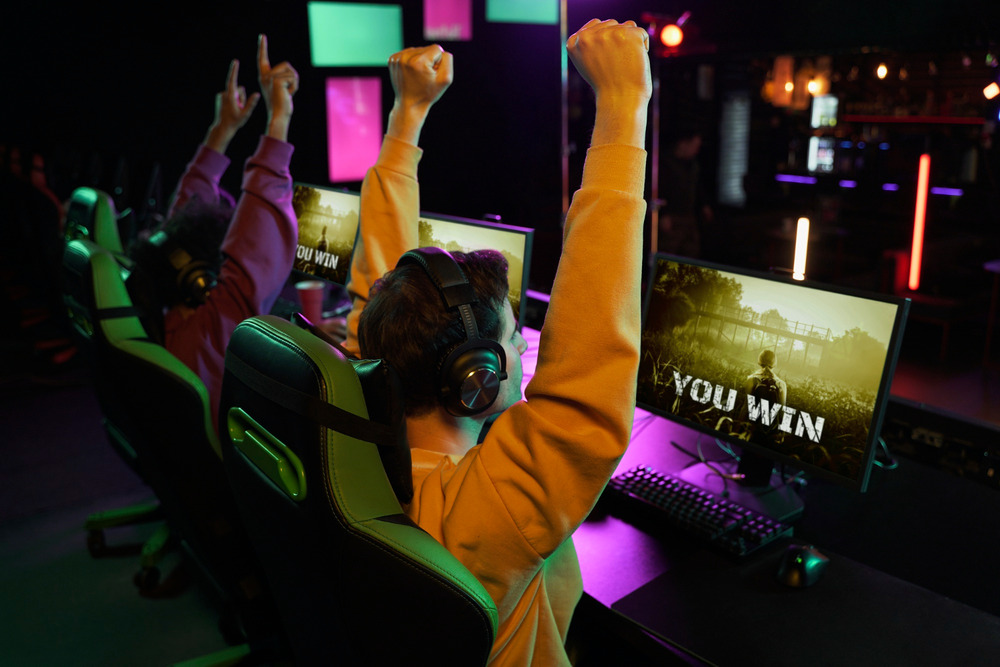
8 Common Errors in Indonesian Game Translation You Should Avoid
Indonesia's gaming industry shows great potential. According to Statista and Kompas.id, the gaming market revenue in Indonesia is expected to reach $505.44 billion in 2024, with an annual growth rate (CAGR) of 8.74%, reaching $649.8 billion by 2027.
Angela Tanoesoedibjo, Vice Minister of Tourism and Creative Economy, identified mobile games as a key trend for 2024, alongside audiovisual, music, and collaboration. This indicates that the gaming industry in Indonesia is evolving from mere entertainment to a thriving profession.
Furthermore, as of January 2024, Indonesia leads Southeast Asia in contributing games to the Steam platform (@VirtualSEAsia on the X platform). To achieve success and sales in Indonesia's gaming market, high-quality game translation is essential.
The quality of localization impacts user experience as much as animations, graphics, and sound effects. Have you considered the challenges of localization and how to overcome them? This article highlights the eight most common mistakes in Indonesian game translation and how to avoid them.
8 Common Mistakes in Indonesian Game Translation
With more and more games being translated into Indonesian, developers need to understand the common mistakes that often occur in the translation process. Here's the explanation:
1. Embedding Text into Core Files
One of the biggest mistakes in game translation is embedding text directly into the game's core files. This makes the translation process difficult because the text is not separated from the program code.
For example, if a character's dialogue text resides directly within a code file, the translator must sift through the code to find the text that needs to be translated. This not only makes the translator's job more difficult but also increases the risk of errors that can affect game performance. So, try to avoid entering your text into the code. Instead, you can externalize the text from a source code file. Don't worry because externalization can be done in almost all programming languages. For example, externalization in Python saves text in a “.json” file, while in Java in a “.properties” file.
2. Ignoring Indonesian Cultural Nuances
Each language has its own cultural nuances, and ignoring these can cause the translated text to feel foreign, offensive, or even boycott the target market. Especially if the target of your game translation is in Indonesia, then the cultural nuances should not be ignored. The reason is that Indonesia is known as the home of thousands of traditions and customs, not to mention the different taboos and dialects in each region.
3. For Fiction Game Content, the Diction Used Is Too Stiff and Lacks Variation
In games that contain fictional stories, the use of stiff and unvaried diction can ruin the gameplay. Language in fictional games must be lively and dynamic to reflect the world being created. The translator must have the freedom to use a variety of words and language styles that suit the context of the story.
4. Changing the Worldview of the Game

When dealing with Indonesian game translation, the most important thing is not to damage the “worldview” of the game. "Worldview" here refers to the time and space setting, the nature, characteristics, life habits, and other aspects of the characters in the game. However, if you translate it word by word, the content of the story will not seem exciting, and it will also not be able to fully display the characteristics of the characters. So, in order to properly present the game worldview, the translator must have played the game and studied the scenario before beginning to translate. Only by understanding the content of the game can you understand the characters' words and the meaning of each scenario description. Worldview is an important key that can determine a game's rating, so when entrusting a translation company to translate a game for the Indonesian target market, it is advisable to ask the translation company to look for a translator who specializes in translating games in Indonesian.
5. Inconsistent Translation Style

To maintain the integrity of the worldview in the game, it is essential to keep the vocabulary and translation style consistent. Hence, a "Glossary (vocabulary database)" and a "style guide (word selection and cultural context)" are necessary.
In games, certain vocabulary words have corresponding translation methods, so a glossary will codify these fixed rules. Moreover, there will definitely be a lot of special vocabulary in the game, such as characters, items, or skills, so it is advisable to prepare the translation rules for your game into a glossary and provide it to the translation company. So, what is meant by a style guide in game translation? This means that game companies need to develop rules for selecting words and culture that are used as references for the sake of uniformity in disclosure methods. For example, which characters should look respectful when speaking, or what special habits and auxiliary words they have when speaking. When entrusting Indonesian game translations, it is also recommended to provide a style guide to the translation company.
6. Lack of Communication and Information
Is it true that poorly translated games are always the work of unprofessional people? Not necessarily. Poor Indonesian game translation results can also occur due to a lack of communication between the client and the translator, or the translator and the agency that gave him the job. The client should provide sufficient context and details about the game's world and characters to help the translator produce accurate and appropriate translations. Translators need context to produce accurate and appropriate translations. Without sufficient context, translations can become unclear or misinterpreted. Providing scripts, screenshots, or even access to the game build can be very helpful. Similarly, if the agency fails to clearly communicate the client's needs and expectations to the translator, the final result may not meet the desired standards.
7. Skipping User Testing
Picture 3
Conducting user testing is essential to prevent localization problems like functional issues, clumsy translations, and cultural disconnects. For example, neglecting user testing on devices commonly used by local gamers can result in UI issues that impact the player experience, such as lengthy translated text disrupting the visual design. Game publishers should also engage in extensive playtesting with local players. This process offers valuable insights into all facets of the game, including language, user interface, gameplay, and cultural relevance. This feedback is crucial for identifying and resolving problems before the game's release, ultimately saving time and maintaining the game's reputation.
8. Work with Non-gamer Translators
Translators who have no gaming experience may not understand game-specific terminology or gameplay context. This could result in inaccurate or confusing translations for players. For example, the game Bully was released around 2007 by an unknown group of hackers. As it wasn't an official release, the hackers had to use their limited resources to translate it. Predictably, several translation errors were found that require further investigation. One example is the dialogue “notifications are always posted here,” which was translated as “pengumuman penting selalu dikirim ke sini.” The problem is with the word “posted,” which was inaccurately translated as “dikirim.” This is incorrect because “post” here does not mean “mail.” A better translation would be “dipasang,” as it refers to a bulletin board. Additionally, there were other minor errors in dialogues, titles, and mission instructions. This likely happened because the person who translated the game was probably not from a professional Indonesian game translation service and they translated the game merely from their own basic understanding of English.
Conclusion
Avoiding common mistakes in Indonesian game translation requires proper attention and investment. By separating text from code, using appropriate language variations, considering local culture, working with translators who understand the game, and providing sufficient contextual information, developers can ensure that their games are well received by Indonesian players. If you are looking for a reliable Indonesian game translation partner, Digital Trans-Asia is the right choice! We offer superior-quality translations completed quickly and efficiently, all at the best prices on the market. Don't miss this opportunity to improve the quality of your translations. Contact us now and get an exclusive one-on-one consultation with our team of professional experts, ready to help you achieve the best results!